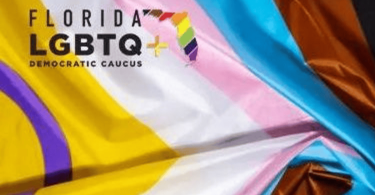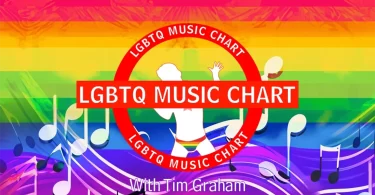On Wednesday, GLAAD, a leading advocacy group on LGBTQ representation in media, released a report detailing numerous instances of anti-trans sentiment via Meta’s top social platforms, including Facebook, Instagram, and Threads. The report was generated through GLAAD’s Social Media Safety program which focuses on the comprehensive study, surveillance, and documentation of issues affecting LGBTQ users on social media— while prioritizing their safety, privacy, and the right to express themselves.
From June 2023 to March 2024, the organization utilized Meta’s standard reporting mechanisms to flag content that breached its platform policies. Reported instances of policy violations included several categories:
– The use of severe anti-trans slurs
– The excessive propagation of dehumanizing stereotypes: labeling trans, nonbinary, and gender non-conforming individuals as ‘satanic,’ ‘sexual predators,’ ‘terrorists,’ ‘mentally ill,’ and ‘perverts’
– Deliberate misgendering
– The promotion of “conversion therapy”
– Targeted harassment and incitement to violence
– The use of violent language aimed at LGBTQ individuals
– And explicit, coded calls for the ‘eradication’ of trans people
The report also reveals that most of the perpetrators of anti-trans hate are well-known political figures and media personalities with significant followings. Although such content is strictly prohibited, violations flagged for review are often inaccurately ruled to be in compliance with the company’s guidelines and policies. Yet, as Meta’s earnings reach the trillion-dollar mark, the colossal conglomerate continues cutting back on essential trust and safety personnel—relying solely on ineffective AI-driven systems for content moderation.
For years, GLAAD has staunchly advocated for the implementation of stronger protections for LGBTQ communities online, particularly trans users, who face disproportionate harm from anti-LGBTQ accounts with massive audiences. Unfortunately, Meta has done little to quell the proliferation of anti-trans discourse across its platforms; in stark contrast to the company’s own admissions about the harmful impacts of online hate speech.
GLAAD isn’t the only group raising concerns over Meta’s disregard of user safety. Facebook’s Oversight Board has also openly critiqued the company’s perpetual enforcement lapses since its inception. Despite joint grievances and Meta’s own admission of missteps along the way, the company’s response to mounting calls for improved policy enforcement remains tepid.
An open letter from GLAAD, the Human Rights Campaign, and over 250 LGBTQ+ celebrities and allies previously demanded stronger action from Meta against anti-trans hate. Regardless of those efforts, GLAAD asserts that Meta has yet to take adequate action, leaving numerous reported violations unaddressed or outright dismissed.
One egregious example cited by the advocacy group highlights an Instagram post that depicts a disturbing image: a trans person’s mangled corpse sprawled on the ground, appearing to have been fatally assaulted with stones, symbolically replaced by laughing emojis. Accompanying this graphic portrayal, the caption labels trans people as ‘devils.’
A GLAAD spokesperson shared the following statement with ForbesBLK via email Wednesday afternoon:
“This is not just a matter of taking down a few specific posts, this is a systemic issue. Both that Meta’s content moderation systems are unable to, or refuse to, recognize extreme anti-trans hate content as violative; and that Meta decision-makers and executives personally are unable to, or refuse to, characterize extreme anti-trans hate content as being sufficient to cross their lines into being removed or mitigated. It is up to Meta to decide how they want to enforce their own policies. Do they believe in platforming extreme anti-trans hate or will they decide it goes against their values as a company?”
The organization says it will continue taking Meta to task over the platform’s purported commitment to enforcing its anti-hate speech policies, ensuring safety for trans users— as well as other protected classes of people.
Thursday, in a subsequent interview, writer and trans activist Raquel Willis stressed the need for accountability paired with expert advice, in order to effectively tackle the dangers of misinformation. “The anti-trans hate experienced on social media is a reflection of the ignorant rhetoric spewed by conservative politicians and elevated by mainstream media,” she explained. “Platforms like Meta should prioritize developing better mechanisms that hold those that habitually contribute to hate-driven content and culture, directly accountable.”
Willis believes the company must also encourage its users to become better fact-checkers, in addition to amplifying accounts considered to be verified sources. Her final piece of advice not only presents a solution to combating misinformation; it also forges a path towards equity and opportunity: “Hire trans experts to enhance existing standards, update language models, and help guide the work.”
In the June 2023 open letter that Willis and over 250 others signed onto, the call to action was made abundantly clear. Meta must promptly devise and publish an effective strategy that addresses several issues, including but not limited to:
The circulation of dangerous falsehoods and disinformation about healthcare for transgender youth
The presence of accounts and content that spread anti-LGBTQ extremist messages and dangerous tropes, including ‘groomer’ and ‘pedophile’ narratives that breach the platform’s rules
The deployment of demeaning, hateful, and abusive campaigns that directly target trans public-figures and influencers
Anti-trans hate speech that encompasses deliberate deadnaming, misgendering, and dog-whistles intended to incite violence
These clear and concise steps alone could reduce the impact of harmful content, counteract hate groups that exploit social media platforms for political and financial gain, and protect not only LGBTQ users—but improve the safety and wellbeing of the broader public as well.







